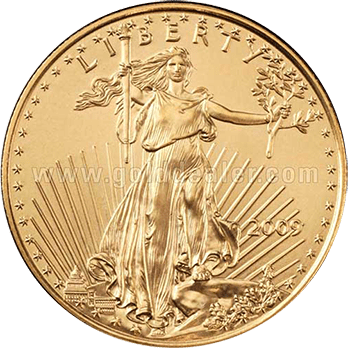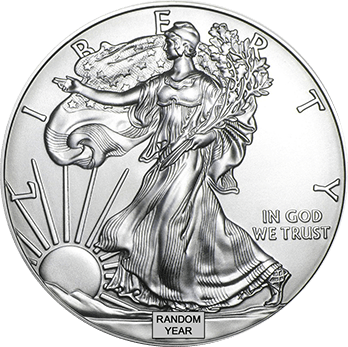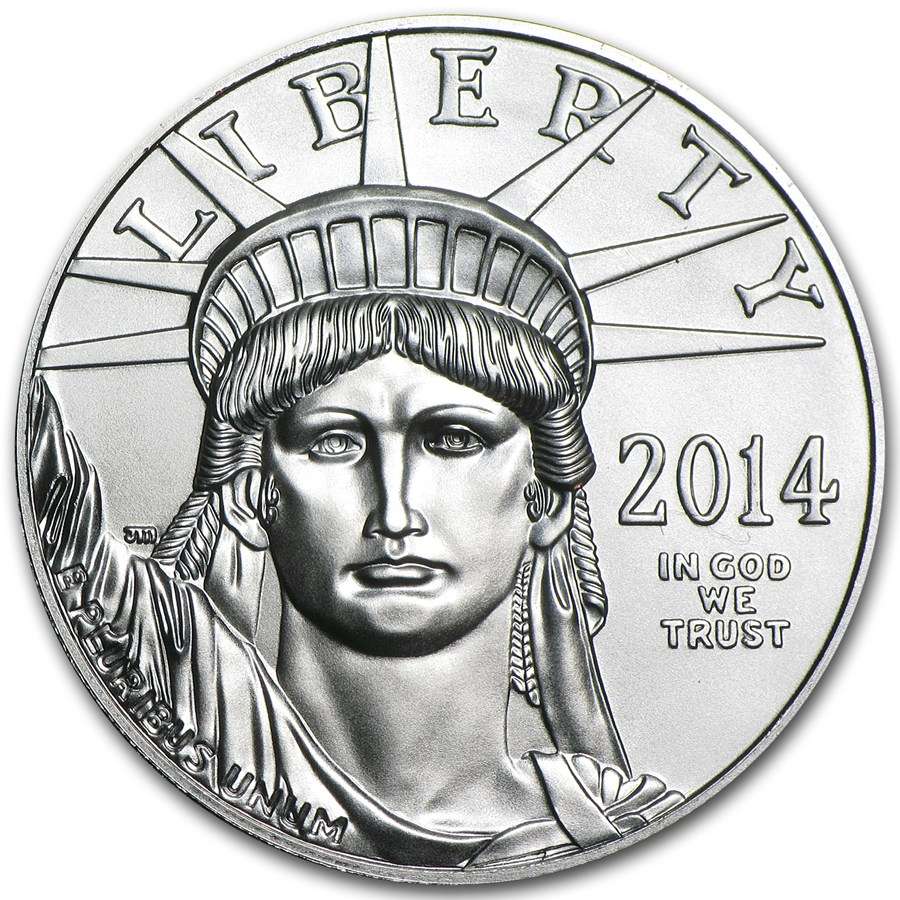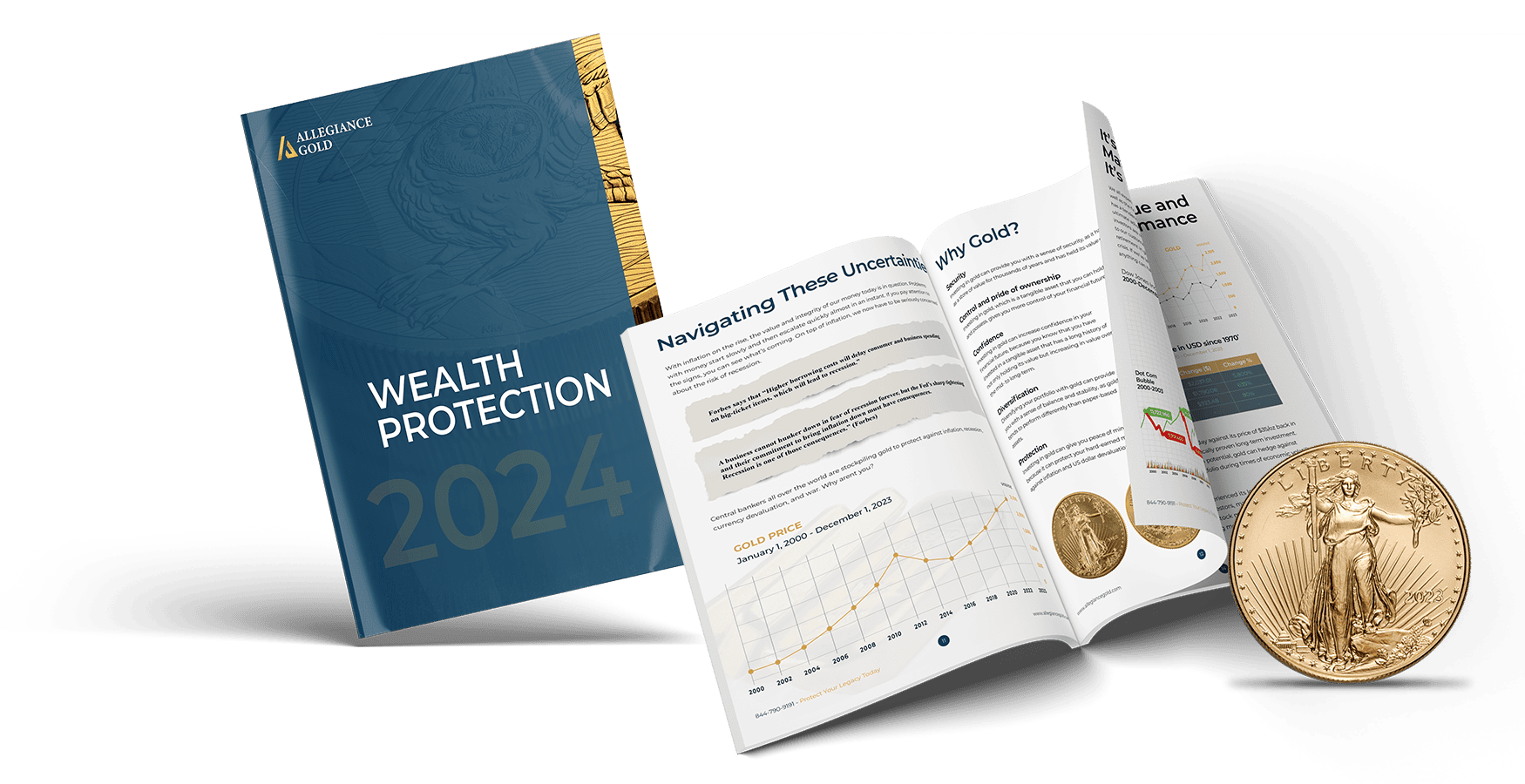In 1848, a laborer named James Marshall found flecks of Gold in the dirt near the site of a California sawmill.[1] His discovery soon prompted the largest Gold rush in American history. Over the next few years, hundreds of thousands of prospectors from all over the world streamed to the foothills of the Southwestern US, hoping to get their hands on the precious metal.[2]
Now, nearly 200 years later, there’s a new Gold rush happening.
Only this time, it’s even bigger.
In 2022, central banks around the globe purchased more than $70 billion worth of Gold.[3] This 18% increase in demand from last year has caused more than 1,100 tonnes of one of the world’s most precious metals to change hands—the most since 1950.[4]
Today, we’re diving into the motivations and mechanics behind the banks buying so much Gold, and why the world, in general, is rushing for Gold once again.
Who Is Buying Gold?
Unless you’re up to date on foreign government purchasing trends, you may be hearing about this record-breaking shift to Gold for the first time. However, it’s not your fault—this coordinated effort to buy physical Gold has not been widely broadcast. In fact, roughly two-thirds of the Gold purchases carried out by central banks in 2022 were not publicly reported.[5]
Among the nations that did report their Gold-buying habits was Turkey, who, as the top purchaser, currently is in possession of 565 tonnes of Gold.[6] Other sizable purchases included:
- Egypt (47 tonnes)
- Qatar (35 tonnes)
- India (33 tonnes)
- Iraq (34 tonnes)
Because much of the data is obscured, it’s impossible to say exactly where the rest of the 1,136 tonnes went. But analysts suggest that some of the most active buyers of Gold throughout 2022 were China and Russia.[7] We’ll touch on why that might be in the section that follows.
Why Are the Banks Moving Their Capital to Gold?
So, we’ve covered the “who” and “what” of this new Gold-buying trend. But the most pertinent question remains: Why are central banks rushing to fill their coffers with Gold?
In many ways, the reasons to own Gold now are the same as they’ve always been, only they’re amplified by the current economic climate. Governments and banks are turning to Gold because:
- It’s remarkably resilient – Historically, Gold has performed exceptionally well in times of economic uncertainty and instability. During both the Great Recession and the COVID-19 pandemic, the price of Gold hit record highs while the stock market slumped.[8] Given that many experts are predicting a recession in 2023,[9] the banks are likely shoring up their Gold reserves as a hedge against a looming crash.
- It’s a long-term store of value – Because Gold is largely unaffected by market forces, it retains its value over time. The price of Gold still fluctuates, but as a finite commodity, it tends to increase steadily over time. Central banks buying Gold can rest assured that their reserves will still be valuable in 20 or 30 years; the same can’t always be said for paper-based or fia currency.
- It’s always in demand – Gold is not just an investment asset—it’s a component in nearly all electronic products and jewelry. As such, it’s as liquid as investments come. This liquidity makes Gold a relatively low-risk asset to carry. If and when the banks need to sell, they’ll have no trouble finding a buyer.
In essence, the banks are purchasing Gold because Gold was, is, and always will be a sound investment.
However, there’s more to the story.
It’s About More Than Money
Aside from the countless benefits of owning Gold, there’s also a geopolitical aspect at play. As the Russo-Ukraine war enters its second year, tensions between observers have intensified as every country chooses a side (or claims neutrality).
Countries like Russia, China, and India—who have diverged from the United States on its pro-Ukraine stance[10]—all hope to move away from the stranglehold of the US dollar. Purchasing untold quantities of Gold helps them achieve this ambition.
While this coordinated pivot sends a political message to the United States, it’s also financially prudent. Since 1933, the dollar has lost 99% of its value against Gold.[11] By distancing themselves from a weakening US dollar and filling their coffers with Gold, these countries maintain their buying power on the world stage.
Should You Follow the Bank’s Lead?
If you can’t afford to buy 35 tonnes of Gold, should you still buy Gold? Even in smaller amounts, the benefits of Gold remain. When you move a portion of your investments to a physical Gold position, you might enjoy the same advantages as the central banks, including:
- Portfolio diversification
- Protection from inflation and currency devaluation
- Long-term value
- Significant returns
Your personal bank or financial advisor may try to dissuade you from holding Gold. But this suggestion has nothing to do with your best interests and everything to do with their potential gains. When your capital is stored in a tangible asset, your financial institution can’t invest it, and your financial advisor can’t earn a commission.
The only person who stands to benefit from holding Gold is you.
Join the Modern-Day Gold Rush
A lot has changed since the original California Gold rush, but one fact remains: Gold is still immensely valuable. And today, you can enjoy all the benefits of owning Gold without having to dig it out of the ground yourself.
In fact, with so many eyes on Gold, now may be a fantastic time to purchase. If the demand for Gold from central banks continues to grow, its price will likely increase in equal measure.
If you’re ready to take a page from some of the world’s most powerful institutions and join the 21st-century Gold rush, Allegiance Gold can help you diversify your portfolio with physical Gold and precious metals.
To get started, apply for a custom precious metals IRA today or contact us for more information.
Request our FREE investment guide to uncover insider tips and strategies for protecting your wealth.

Sources:
[1] California Department of Parks and Recreation. Gold Rush Overview. https://www.parks.ca.gov/?page_id=1081
[2] PBS. The California Gold Rush. https://www.pbs.org/wgbh/americanexperience/features/goldrush-california/
[3] Reuters. Central banks bought the most gold on record last year, WGC says. https://www.reuters.com/markets/commodities/central-banks-bought-most-gold-since-1967-last-year-wgc-says-2023-01-31/
[4] World Gold Council. Gold Demand Trends Full Year 2022: Central Banks. https://www.gold.org/goldhub/research/gold-demand-trends/gold-demand-trends-full-year-2022/central-banks
[5] Reuters. Central banks bought the most gold on record last year, WGC says. https://www.reuters.com/markets/commodities/central-banks-bought-most-gold-since-1967-last-year-wgc-says-2023-01-31/
[6] Nasdaq. Which Central Banks Bought the Most Gold in 2022?. https://www.nasdaq.com/articles/which-central-banks-bought-the-most-gold-in-2022
[7] Financial Post. Central banks buy gold at fastest pace in 55 years. https://financialpost.com/commodities/mining/central-banks-buy-gold-fastest-pace-55-years
[8] Bloomberg. Investing in Gold: Is Gold Still a Good Inflation Hedge in a Recession? https://sponsored.bloomberg.com/article/investing-in-gold-is-gold-still-a-good-inflation-hedge-in-a-recession-
[9] World Economic Forum. Chief Economists Say Global Recession Likely In 2023, But Pressures On Food, Energy and Inflation May Be Peaking. https://www.weforum.org/press/2023/01/chief-economists-say-global-recession-likely-in-2023-but-cost-of-living-crisis-close-to-peaking/
[10] Al Jazeera. Where does your country stand on the Russia-Ukraine war? https://www.aljazeera.com/news/2023/2/16/mapping-where-every-country-stands-on-the-russia-ukraine-war
[11] Nasdaq. Rough Waters Ahead For The US Dollar. https://www.nasdaq.com/articles/rough-waters-ahead-for-the-us-dollar



 Custom Precious Metals IRA
Custom Precious Metals IRA Gold IRA
Gold IRA Gold Products
Gold Products Silver Products
Silver Products Platinum
Platinum